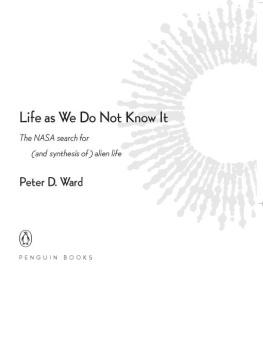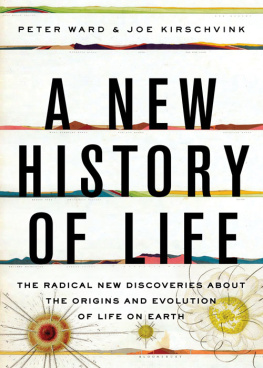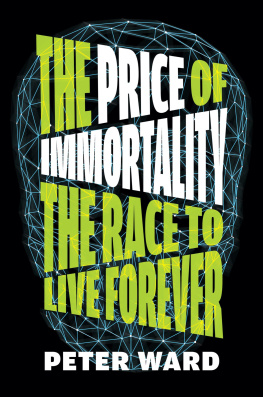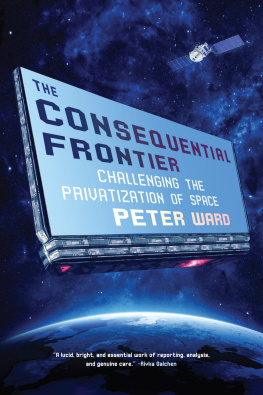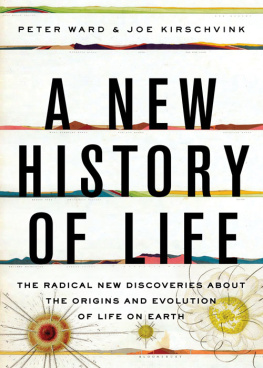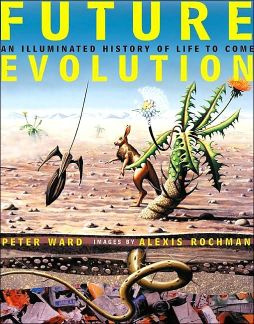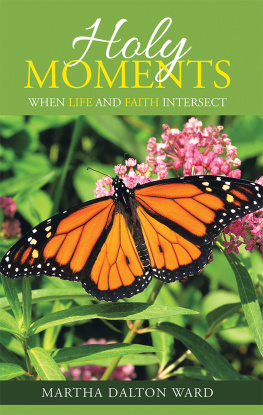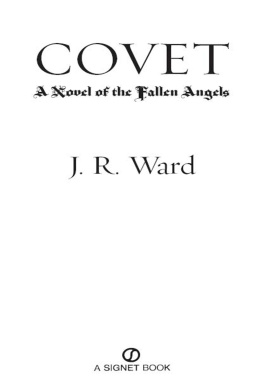Table of Contents
PENGUIN BOOKS
LIFE AS WE DO NOT KNOW IT
Peter Douglas Ward is professor of biology, professor of earth and space sciences, and adjunct professor of astronomy at the University of Washington in Seattle. Since earning his Ph.D. in 1976, Ward has published more than one hundred scientific papers dealing with pale-ontological, zoological, and astronomical topics. He is the author of twelve books, including Gorgon, Future Evolution, and The End of Evolution, and is the coauthor of Rare Earth and The Life and Death of Planet Earth. Ward has also appeared in numerous TV documentaries for PBS, the Discovery Channel, and The Learning Channel. He lives in Seattle, Washington.
For Don Brownlee, Joseph Kirschvink, Geoff Garrison, Ken Williford, Jim Haggart, Ken MacLeod, and Roger Smith: Colleagues
And Patrick, Nicholas, and Christine,
of course
PENGUIN BOOKS
Published by the Penguin Group
Penguin Group (USA) Inc., 375 Hudson Street, New York, New York 10014, U.S.A.
Penguin Group (Canada), 90 Eglinton Avenue East, Suite 700, Toronto,
Ontario, Canada M4P 2Y3 (a division of Pearson Penguin Canada Inc.)
Penguin Books Ltd, 80 Strand, London WC2R 0RL, England
Penguin Ireland, 25 St Stephens Green, Dublin 2, Ireland (a division of Penguin Books Ltd)
Penguin Group (Australia), 250 Camberwell Road, Camberwell,
Victoria 3124, Australia (a division of Pearson Australia Group Pty Ltd)
Penguin Books India Pvt Ltd, 11 Community Centre,
Panchsheel Park, New Delhi-110 017, India
Penguin Group (NZ), 67 Apollo Drive, Mairangi Bay,
Auckland 1311, New Zealand (a division of Pearson New Zealand Ltd)
Penguin Books (South Africa) (Pty) Ltd, 24 Sturdee Avenue,
Rosebank, Johannesburg 2196, South Africa
Penguin Books Ltd, Registered Offices: 80 Strand, London WC2R 0RL, England
First published in the United States of America by Viking Penguin,
a member of Penguin Group (USA) Inc. 2005
Published in Penguin Books 2007
Copyright Peter Ward, 2005
All rights reserved
Photographs from NASA
eISBN : 978-0-143-03849-8
CIP data available
The scanning, uploading and distribution of this book via the Internet or via any other means without the permission of the publisher is illegal and punishable by law. Please purchase only authorized electronic editions, and do not participate in or encourage electronic piracy of copyrighted materials. Your support of the authors rights is appreciated.
http://us.penguingroup.com
Preface
There are four goals that I am trying to accomplish in the following pages.
The first is to bring the public up to date on progress in the relatively new scientific field called astrobiology, the study of life in the universe, which of course includes the study of life on Earth. An astonishing rush of twenty-first-century discovery has rendered obsolete most books on this subject, even those published in the last five years. Some of the new knowledge that has made so many excellent titles so out-of-date has been accumulated by space probes, and some by scientists feverishly working here on Earth. The sum of these robotic and human efforts has given us a new and much more positive view of prospects for life beyond Earth in our solar system, as well as a wealth of new insight into how earth life arose and what it is. In pages to come I will show why there is such new optimism about life beyond Earth, and optimism as well about a once seemingly impossible task, the synthesis of artificial life here on Earth. Yet as wonderful as this story of new discovery is, by itself it would not have been enough to tempt me away from other research projects just to write such a book. However, without this updating I could not coherently accomplish my other, more interesting goals, all of which deal with presenting new ideas and research that I either am involved with or help fund through a large NASA grant that I administer.
One such new view informs my second goal: to redefine that elusive property that we call life and then show that mainstream biology has inadequately addressed this issue in its currently narrow view of what life is or is not. I propose that objects now considered unliving, such as viruses, as the best (but not sole) example, are indeed alive. With this leap I will then propose a new classification of life and justify why such an undertaking is necessary at this time. This finally leads to a presentation of a new, comprehensive scenario for the evolutionary pathway to, and environment of, lifes origin on Earth. And it is not just a wider view of what life is that requires a new classification of life. Astonishing progress in the synthesis of artificial life in the first few years of the new century (coupled with the realization that any discovery of alien life on another planet or moon in our solar system probably cannot be classified using our current model of lifes evolution, unless it is earth life that has traveled there through space) has convinced me that the so-called tree of life, the current model of the evolution of life as we know it, must be amended in fundamental ways. Like a newly bought house with a few extra bedrooms, my new classification methodology now has room to house any newly discovered life. Thus, if we ever do find life in the solar system and when, not if, we complete the artificial synthesis of life in the laboratory of organisms that cannot be classified among our familiar earth life, there will be a way to classify it.
All the housekeeping of Goal 2 is necessary to arrive finally at my third goal: a rational look at what alien life might be like. Only by looking at what earth life is may we show what it is not. Goal 3 is intended to show what other chemical assemblages might arrive at the state that we call life.
My fourth and final goal is to take the newly available information about potentially habitable environments elsewhere in the solar system and couple it with the new hypothesis on the evolution and first formation of earth life, as well as with the examination of alternative forms of potentially permissible life, to make informed proposals about the kinds of life that we might find out there in space. Thus, on the basis of new discoveries from Venus, Mars, Europa, and Titan, I will ask three questions about each of these planets or moons:
Could any known kind of earth life live there (or have lived there in the past), and if so, what kind?
Could any chemically permissible kind of nonearth life possibly live (or have lived) there, and how would it be classified?
Is there a scientifically permissible way that such life could evolve or be transported there in the first place?
I am sure that to some of my fellow scientists the new hypotheses proposed in the following pages will be heresy. For example, ever since Darwin, biologists have universally agreed that there is but one kind of life on Earth, what we might call DNA life. Second, everyone except UFO loonies and science fiction moviemakers knows that we humans have never encountered aliens. I will show that both these truths are false. We are just beginning to realize the wondrous diversity of life that is possible in this biological universe. Most of it might be called life as we do not know it, the overall subject of this book.
Perhaps life has evolved only once. But there may be other life, perhaps its even common. Perhaps, even, elsewhere in our solar system. If so, surely it will not all be like earth life. What will alien life be like? Like the famous story, will it be the lady or the tigeror something so different from us that no words will do?


